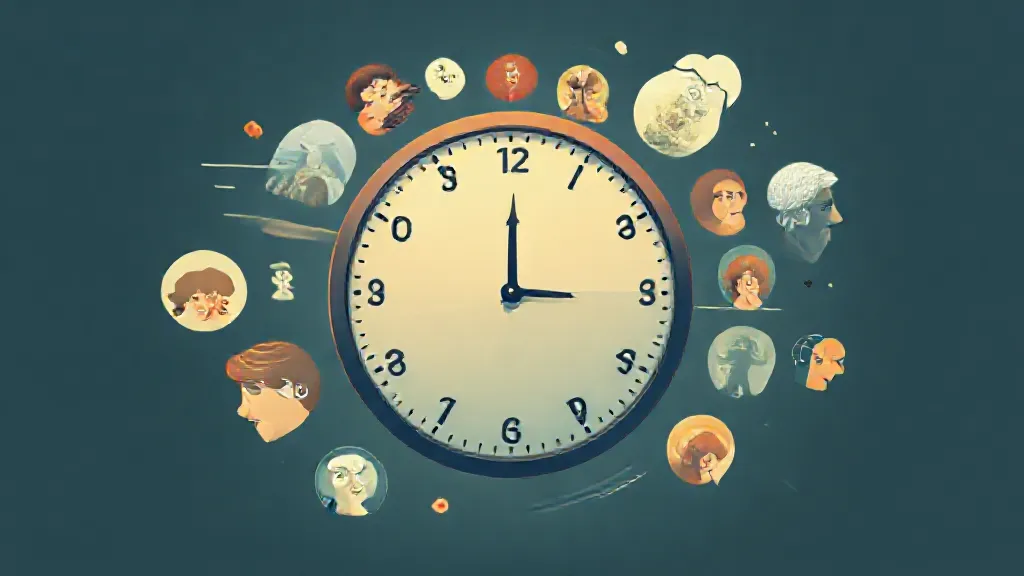As we journey through life, many people notice a curious phenomenon: time seems to accelerate as we age. This perception of time is not merely a trick of the mind; it is influenced by various psychological and biological factors that shape our experiences. Understanding why this happens can provide insight into the nature of time itself and how we perceive it throughout different life stages.
The Psychology of Time Perception
One of the primary reasons time appears to speed up as we age is linked to the way our brains process memories. When we are young, we experience many "firsts"—the first day of school, the first time riding a bike, or the first time traveling. These novel experiences create dense memories, making time feel expansive.
In contrast, as we age, our experiences tend to become more routine and less memorable. This lack of novelty can lead to a perception that time is passing more quickly.
Neurological Changes and Time Perception
Research in neuroscience suggests that our brain's processing speed changes as we age.
The frontal lobe, responsible for executive functions and time perception, undergoes structural changes over the years. As neural pathways become less efficient, our ability to process information may slow down, leading to a distorted sense of time. Studies have shown that older adults often perceive intervals of time as shorter than younger individuals, supporting the idea that our cognitive processing affects how we experience time.
The Role of Attention in Time Perception
Attention also plays a critical role in how we perceive time. When we are fully engaged in an activity, time seems to fly by. Conversely, during moments of boredom or inactivity, time can drag.
Younger people, who often engage in more varied and stimulating activities, may experience time differently than older adults, who might have more predictable routines. This difference in attentional focus can contribute to the feeling that time is moving faster as we age.
Cultural and Societal Influences
Cultural factors also influence our perception of time.
In many Western societies, there is a strong emphasis on productivity and efficiency, which can lead to a hurried lifestyle. As people age and retire, their daily structure often changes, leading to a perceived increase in free time. Ironically, this newfound freedom can also contribute to the feeling that time is slipping away, as fewer structured activities can lead to fewer memorable experiences.
The Biological Clock and Aging
Biologically, our internal clocks may also change with age. The circadian rhythms that govern our sleep-wake cycles can become less consistent, impacting our overall perception of time. Additionally, hormonal changes, such as decreased dopamine levels, can affect our motivation and engagement with life, further influencing our time perception.
These biological changes can create a feedback loop, where the perception of time influences our life choices, which in turn affects how we perceive time.
The Importance of Mindfulness and Novel Experiences
To counteract the feeling that time is racing by, experts suggest incorporating mindfulness practices and seeking out new experiences. Mindfulness encourages individuals to be present in the moment, which can enhance memory formation and create a richer tapestry of experiences.
Engaging in new activities, traveling, or learning new skills can also help create memorable moments that slow down our perception of time.
Historical Perspectives on Time
Historically, different cultures have perceived time in various ways. For instance, many Indigenous cultures view time as cyclical rather than linear, emphasizing the importance of the present moment.
This perspective contrasts sharply with the linear, goal-oriented approach prevalent in modern Western societies. Understanding these different cultural perspectives can provide insight into how our perception of time is shaped and can inform how we approach our own experiences as we age.
Conclusion: Embracing the Passage of Time
Ultimately, the perception of time is a complex interplay of psychological, biological, and cultural factors.
While it may seem that time accelerates as we age, understanding the underlying mechanisms can help us embrace the passage of time more fully. By fostering mindfulness and seeking out new experiences, we can enrich our lives and create lasting memories that slow down our perception of time, allowing us to savor each moment.
